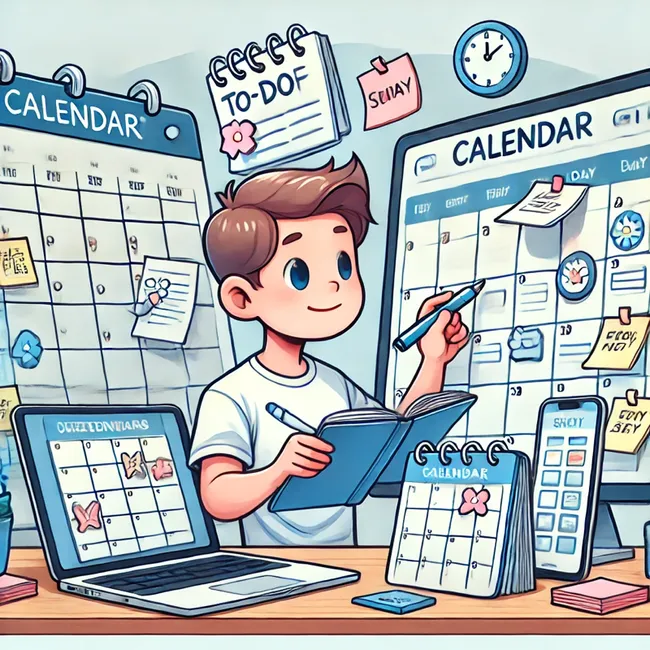
The Power of a Good Schedule
Balancing work, family, and personal projects means keeping track of a lot of moving pieces. Appointments, deadlines, activities, and reminders—if I tried to remember it all without a system, I’d be lost in no time.
My Scheduling System
I use a combination of digital and physical tools to keep my life organized:
- Shared Digital Calendars – I keep multiple calendars on my phone and computer, which I share with my wife. These help us stay in sync with appointments, work events, and our kiddo’s activities.
- A Big Whiteboard Calendar – We have a whiteboard calendar that displays this week and the next four weeks. This is great for at-a-glance reminders and keeping track of upcoming plans.
- Forever Notes for Daily Tracking – Some things don’t quite fit into a calendar, so I use Forever Notes to keep track of day-to-day tasks, quick reminders, and random thoughts that would otherwise get lost.
Why a Schedule Matters
Having a structured schedule isn’t just about remembering things—it’s about reducing stress and staying in control. A few key benefits:
- Fewer surprises – Knowing what’s coming up means fewer last-minute scrambles.
- Better communication – Shared calendars keep my wife and me on the same page.
- More mental space – Writing things down means I don’t have to waste energy trying to remember everything.
- Improved productivity – A clear plan makes it easier to focus on what needs to get done.
Adapting and Adjusting
Even with all these tools, I know that plans change. That’s why I treat my schedule as a guide, not a rigid structure. Some days, things shift, but having a system in place makes it easier to adapt without feeling overwhelmed.
At the end of the day, a good schedule isn’t about filling every moment—it’s about making life a little smoother and a lot more manageable.